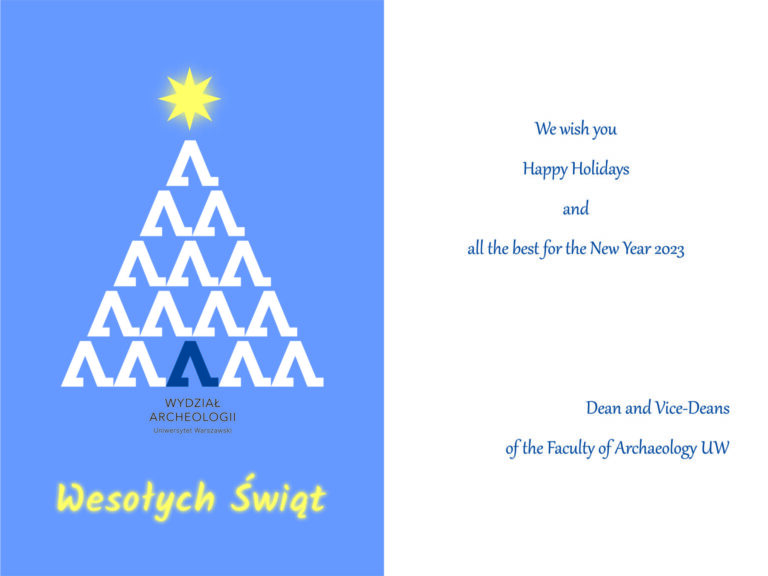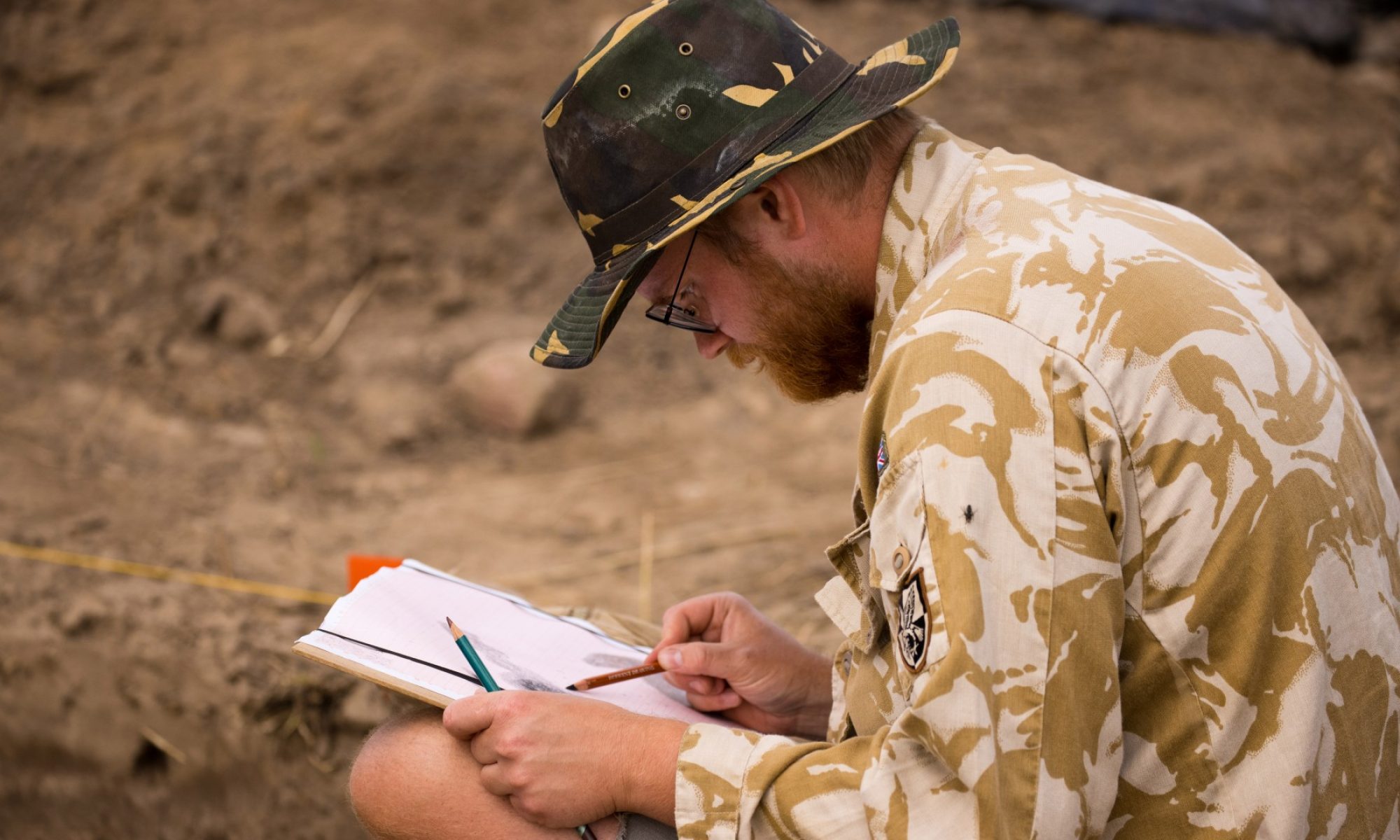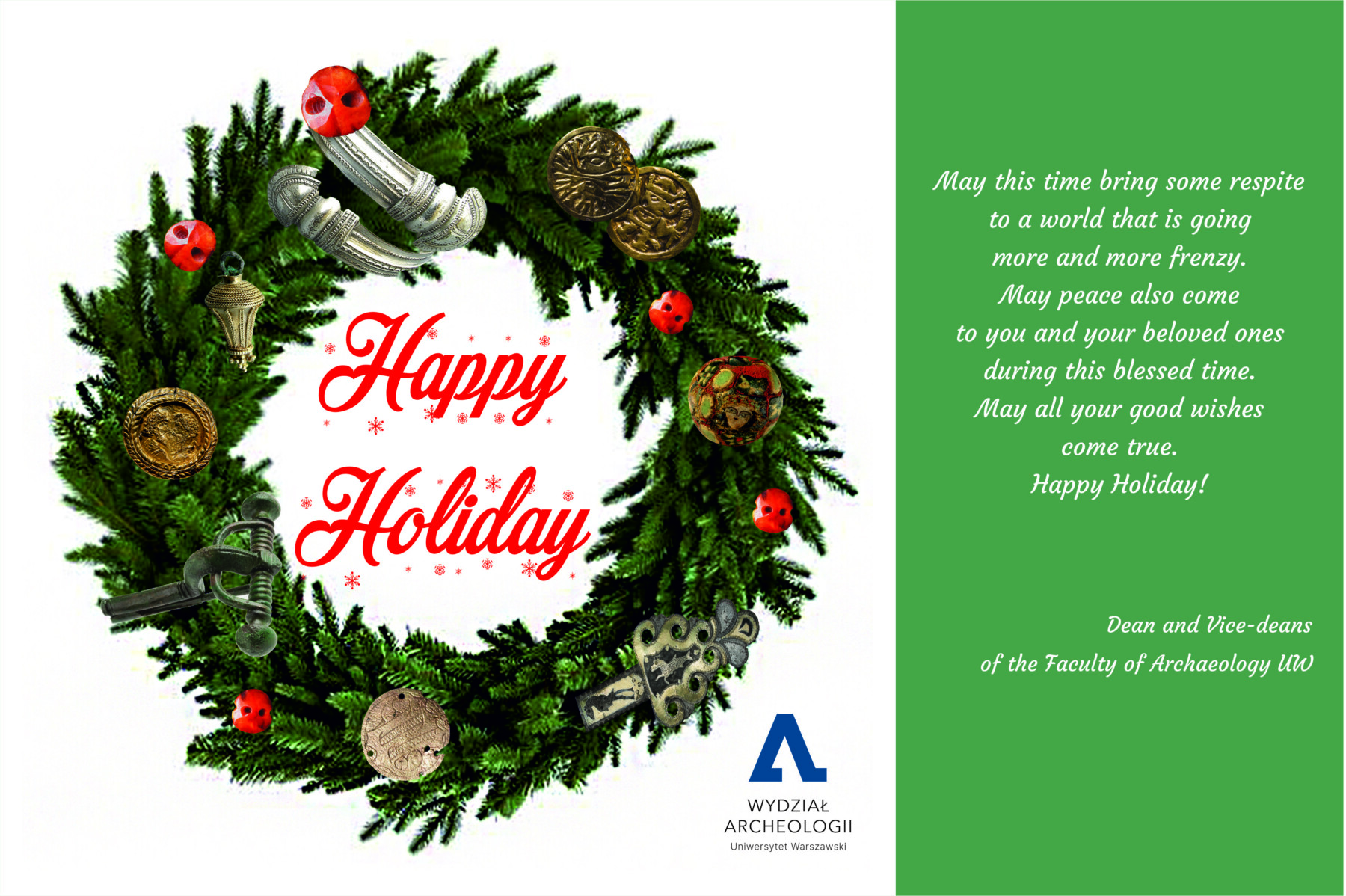
The final EuroWeb conference at the University of Warsaw on May 20-21
EuroWeb is a four-year research action integrating multidisciplinary research on European textiles from antiquity to the present day. It is led by prof. Agata Ulanowska from our Faculty. EuroWeb has united nearly 250 researchers, creators and designers.
Continue reading “The final EuroWeb conference at the University of Warsaw on May 20-21”
Workshop ‘Authority of State and Church in Nubia, its Expression in Costumes’
On 12 and 13 April 2024, a workshop titled ‘Authority of State and Church in Nubia, its Expression in Costumes’ will take place.
This is part of the research project ‘Costumes of Authority. The Image of Royalty and Clergy in Christian Nubia’ (NCN, Polonez bis). The purpose of the workshop is to discuss the costumes of the authorities of the Kingdom of Makuria, in the context of the pre-Christian tradition of Nubia, as well as Byzantine and Ethiopian cultures.
The workshop will take place at the Faculty of Archaeology of the University of Warsaw and will be in hybrid form.
If you are interested in attending online please contact Karel Innemée, k.innemee@uw.edu.pl.
For further information, please follow announcements on our website https://nubianauthorities.archeologia.uw.edu.pl/index.php/activities/.
The programme of workshop is available here.
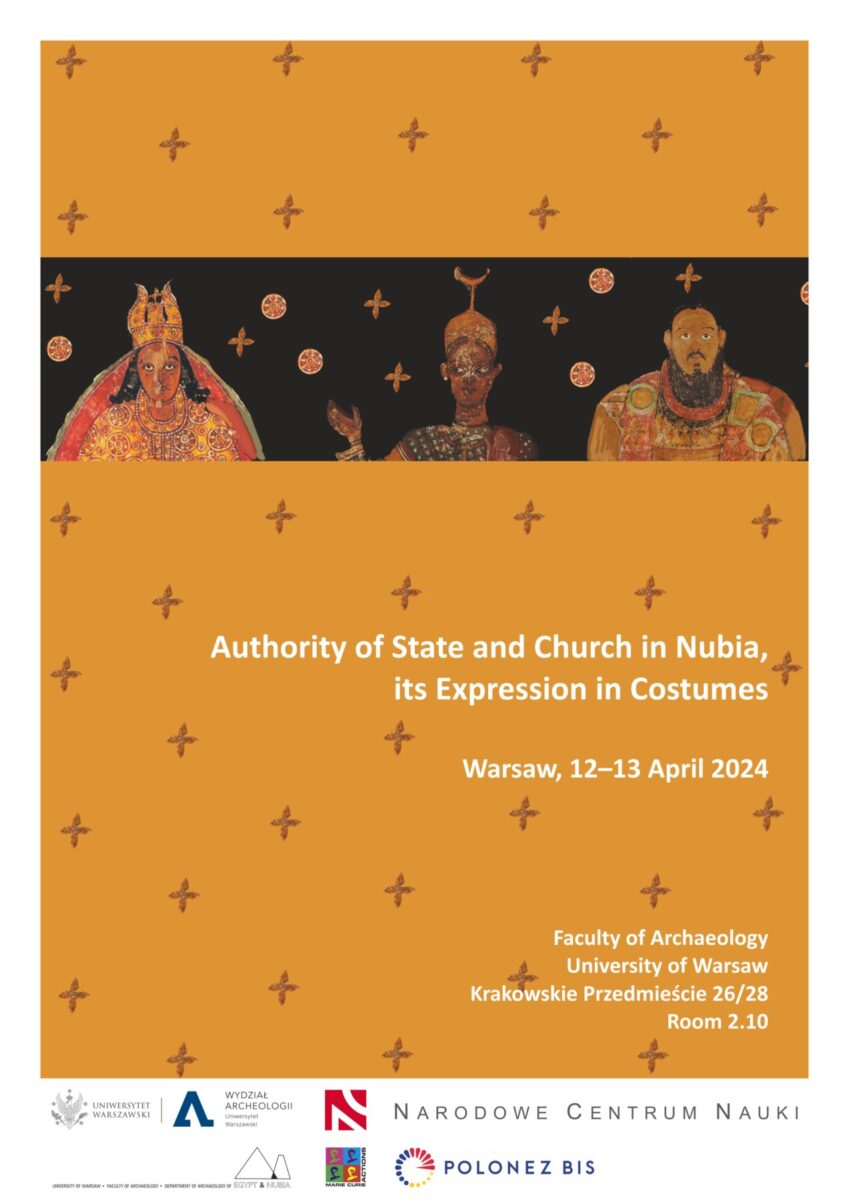
Exhibition about the Faculty of Archaeology in the Kazimierzowski Palace
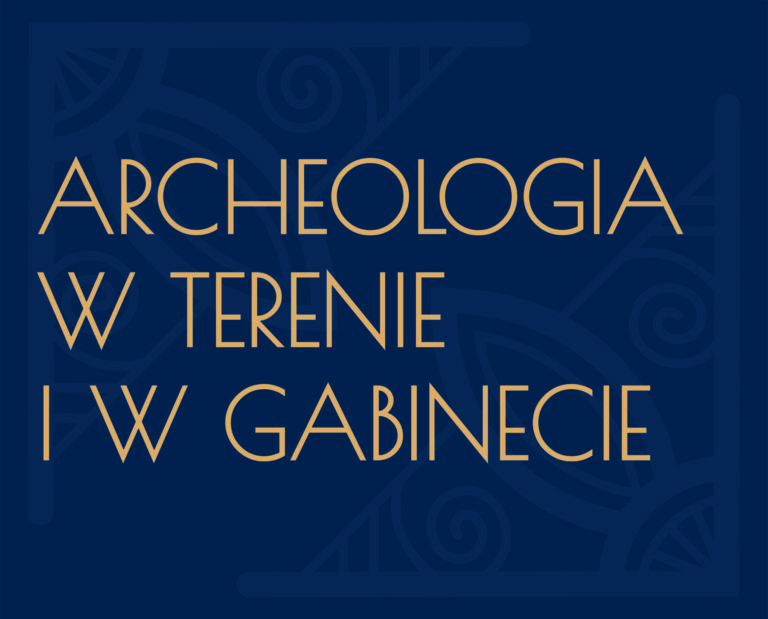
We cordially invite you to see the exhibition regarding the scientific activities of the Faculty of Archaeology of the University of Warsaw.
The exhibition takes place at Kazimierzowski Palace on the Main Campus.
This year we celebrate the 105th anniversary of the founding of archaeology at the University of Warsaw.
It all started in 1919, when Erazm Majewski became a professor at the University of Warsaw and the Department of Prehistoric Archaeology was established.
We would like to thank all authors of texts and photos for their contribution to the preparation of the exhibition.
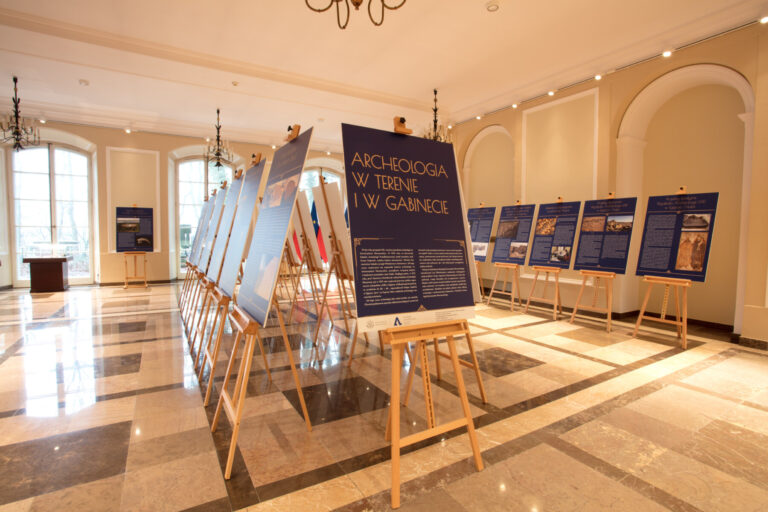
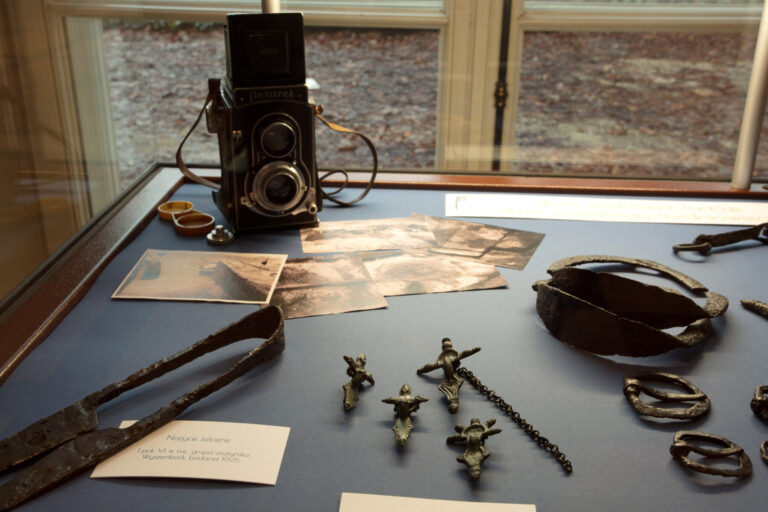
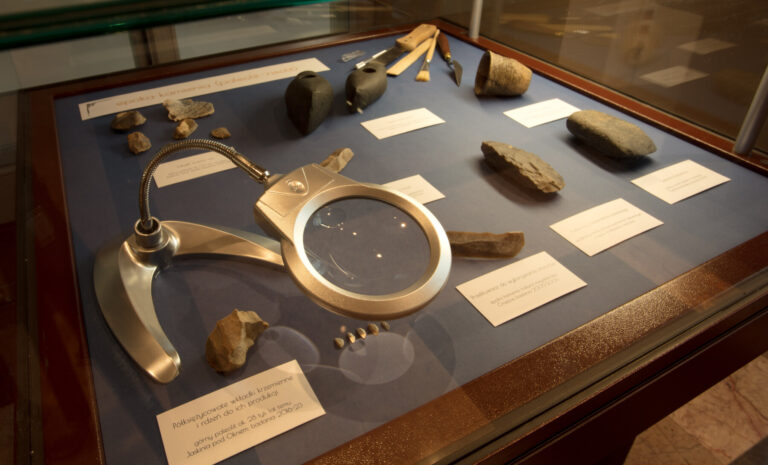
Happy New Year!

Happy Holidays
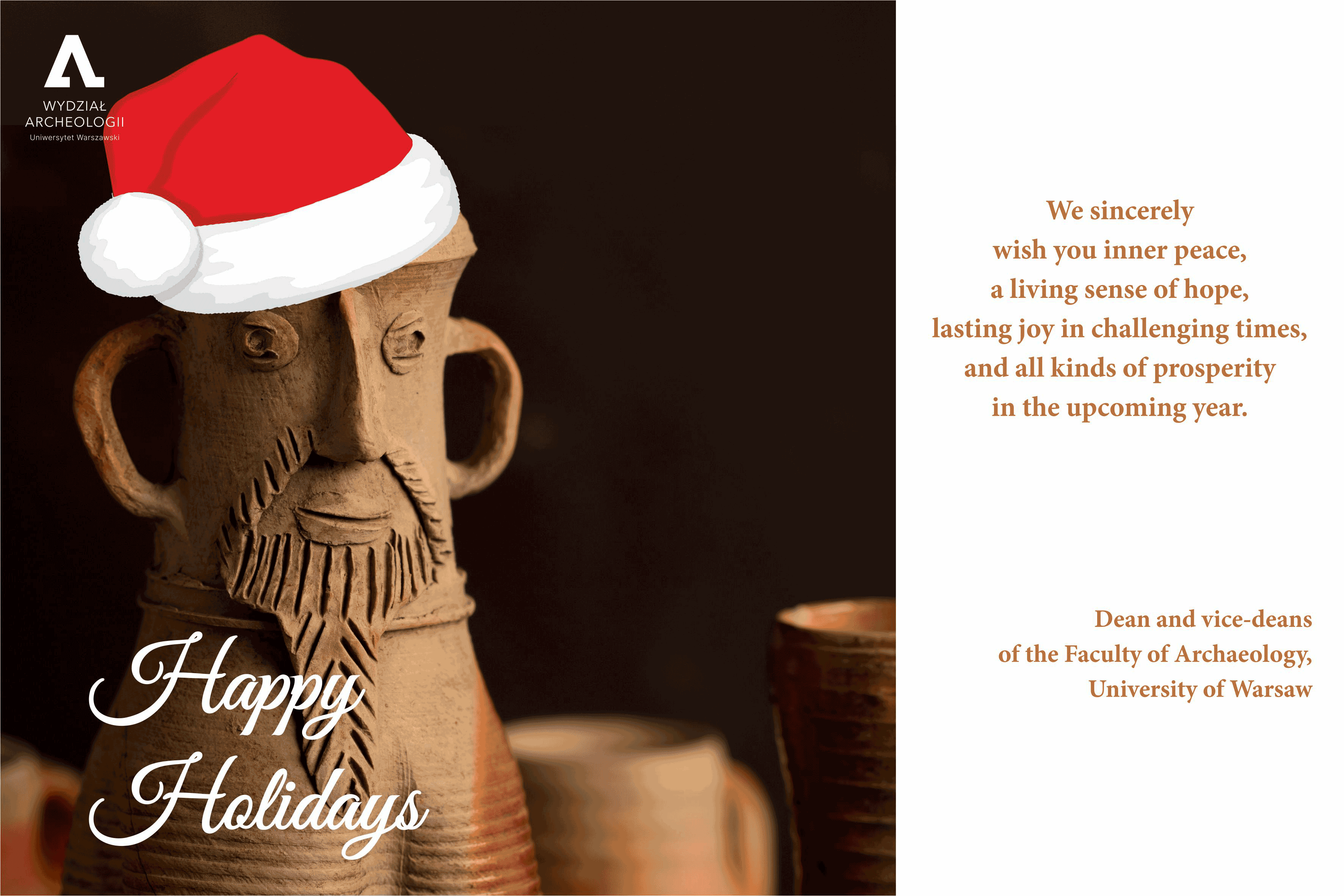
The conference “Chrysomallos III. Polscy archeolodzy nad Morzem Czarnym i na Kaukazie”

On behalf of the organizers of the conference “Chrysomallos III. Polscy archeolodzy nad Morzem Czarnym i na Kaukazie” we cordially invite you to take part in the conference, which will take place on June 15-16, 2023. The conference will start at 9:00 AM.
The conference has a hybrid character – in-person at the Faculty of Archaeology UW, room 2.10 and online via Google Meet => meet.google.com/mxa-sidv-qhi
A conference programme here.
Official launch of the EuroWeb Digital Atlas of European Textile Heritage
We cordially invite you to join us for the official launch of the EuroWeb Digital Atlas of European Textile Heritage, which represents one of the primary outcomes of the COST Action CA 191931 ‘Europe through Textiles: Network for an Integrated and Interdisciplinary Humanities’ hosted at the Faculty of Archaeology UW.
Continue reading “Official launch of the EuroWeb Digital Atlas of European Textile Heritage”
Lecture by Mr. Aleksander Schwartz, an expert of the Rabbinical Commission for Cemeteries
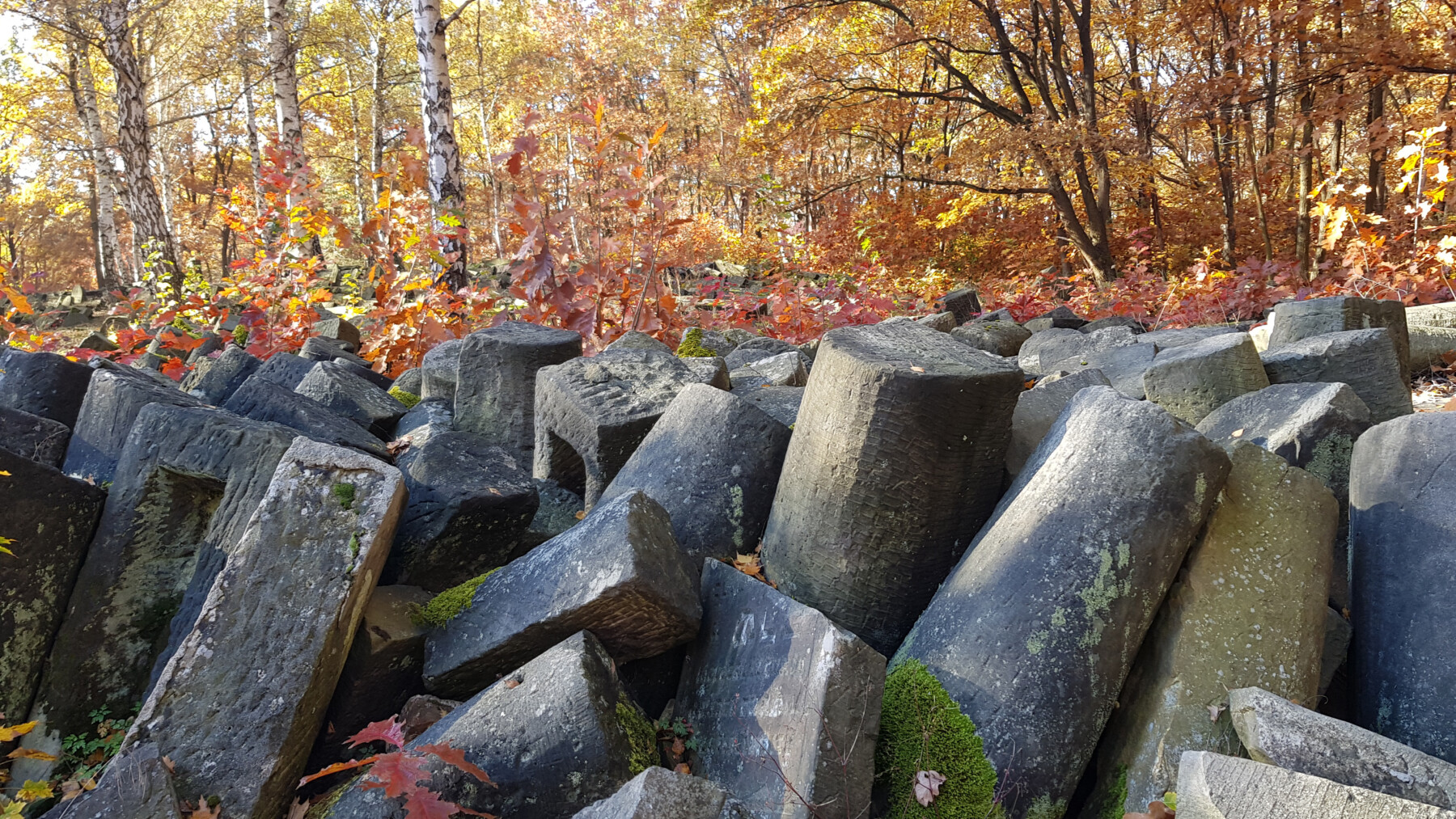
We cordially invite you to a lecture by Mr. Aleksander Schwartz, an expert of the Rabbinical Commission for Cemeteries, a specialist in Jewish law in the field of cemeteries and burials.
Lecture “Practical application of Jewish law in research on cemeteries and burial grounds of Holocaust victims” will take place on February 27, 2023 (Monday), at 1:15 pm, room 2.10 (first floor), in the building of the Faculty of Archeology of the University of Warsaw at Krakowskie Przedmieście 26/28.
Students who want to do archaeological excavation practice at the Jewish Cemetery in Warsaw are required to attend the lecture.
Happy Holidays
